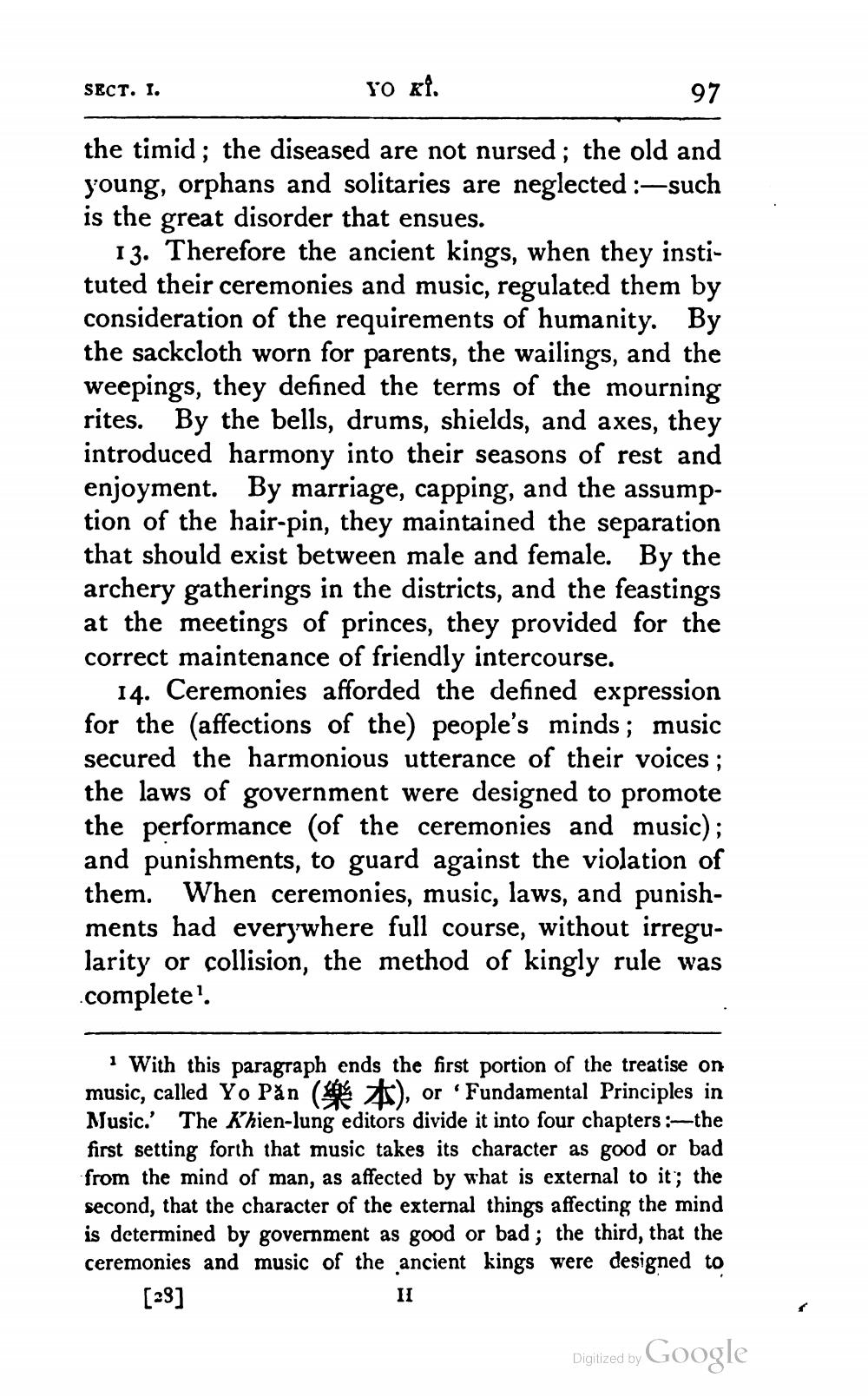________________
SECT. I.
yo ki.
97
the timid; the diseased are not nursed; the old and young, orphans and solitaries are neglected :—such is the great disorder that ensues.
13. Therefore the ancient kings, when they instituted their ceremonies and music, regulated them by consideration of the requirements of humanity. By the sackcloth worn for parents, the wailings, and the weepings, they defined the terms of the mourning rites. By the bells, drums, shields, and axes, they introduced harmony into their seasons of rest and enjoyment. By marriage, capping, and the assumption of the hair-pin, they maintained the separation that should exist between male and female. By the archery gatherings in the districts, and the feastings at the meetings of princes, they provided for the correct maintenance of friendly intercourse.
14. Ceremonies afforded the defined expression for the (affections of the) people's minds; music secured the harmonious utterance of their voices; the laws of government were designed to promote the performance (of the ceremonies and music); and punishments, to guard against the violation of them. When ceremonies, music, laws, and punishments had everywhere full course, without irregularity or collision, the method of kingly rule was .complete?
1 With this paragraph ends the first portion of the treatise on music, called Yo Pån ( ), or 'Fundamental Principles in Music. The K'hien-lung editors divide it into four chapters :-the first setting forth that music takes its character as good or bad from the mind of man, as affected by what is external to it; the second, that the character of the external things affecting the mind is determined by government as good or bad; the third, that the ceremonies and music of the ancient kings were designed to [28]
1Η
Digitized by Google




